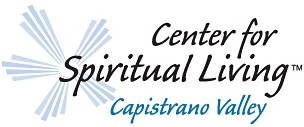Mark Waldman and Andrew Newburg write a monthly column in the Science of Mind magazine. In the March issue they write:
“If your goals are aligned with your deepest values, and if you immerse yourself in the pleasure of achieving daily goals, your brain becomes more motivated to seek bigger rewards. But brains encode failures more easily than success.
To overcome this neurological bias toward negativity, do this exercise every evening. Write down five successes you’ve had that day and savor them. Then write down three things you are grateful for. You’ll find a deep sense of accomplishment, you’ll sleep better and after seven days, the research shows that your self-esteem will grow over the next three months.”
That seems to me to be validating a gratitude journal practice. What you are grateful for expands. This seems like a fairly simple exercise to increase your self-esteem. What could stop you from doing it? Ironically, it is likely lack of self-esteem that will trick you into not doing the work. “Why should you do it? It won’t make a difference anyway?” These negative thoughts are what is causing the problem in the first place.
What could you consider a success? I guess that the first thing would be to make a list of things that you would feel great about. Perhaps it could include having a lengthy, refreshing spiritual practice, reading something inspirational, watching an inspirational video ( I recommend “Shots of Awe.”), calling your mother or daughter, taking a course, making a phone call, keeping a positive attitude at work, cleaning out a drawer or two, making your lunch, or responding rather than reacting to others around you. Of course, some of you won’t consider any of these ideas as accomplishments, so write some of your own, but don’t sabotage yourself by making them too difficult for anyone to achieve.
Remember the whole purpose is to keep it positive and achievable.
We are blessed to have Mark Waldman coming to the Center this Sunday. Not only is he a featured columnist for the Science of Mind magazine, but also he has written several books on he subject of science and spirituality including How God Changes Your Brain, How Words Change Your Brain and Why We Believe What We Believe. His is on the faculty of the Holmes Institute and Loyola Marymount University.
He will be giving the message at the Center this Sunday, March 29 and conducting a workshop afterwards. Come and meet him yourself! You will be glad you did.






